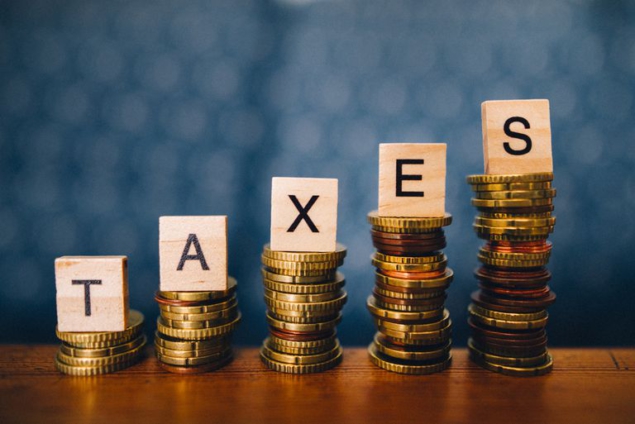Taxation of high-net-worth individuals in Ghana


Collecting taxes from the wealthy is critical to state development, as well as addressing rising inequalities and meeting the needs of human capital investment of low-income countries.
As such, various countries in sub-Saharan Africa have recently started developing targeted strategies to increase tax compliance of high-net worth individuals (HNWIs). Generally, HNWIs are taxed mainly for revenue purposes and to promote tax inclusiveness.
Taxing HNWIs is a way of ensuring fairness and equity in the treatment of taxpayers across all income brackets and socio-economic groups and helping soar low personal income tax (PIT) collections for national developments. Usually, it is expected that those who earn more income pay more in taxes compared to those who earn less based on progressive principles of taxation.
Ghana Revenue Authority (GRA) defines a HNWI using a two-part framework: threshold criteria and wealth indicators. This approach aligns with international standards while being tailored to the Ghanaian context.
The threshold criteria include: (1) income levels of these individuals especially annual earnings from employment, business activities, investments, or other sources, (2) value of asset in a form of total worth of tangible and intangible assets, covering property, shares, and savings, and (3) the combined assessment by taking a holistic view that integrates both income and asset data to determine financial standing of these individuals.
Additionally, GRA incorporates wealth indicators to supplement the threshold criteria. These indicators reflect observable signs of wealth and lifestyle and are particularly useful in the Ghanaian context, where informal wealth and under-declared income may obscure traditional financial metrics.
The indicators include: (1) ownership of high-value properties or vehicles, (2) frequent international travel, (3) significant philanthropic activity, (4) luxury consumption patterns, (5) business ownership or executive roles, (6) offshore investments or accounts, and (6) schools/institutions that one wards attend.
HNWI taxpayers are further classified into three tiers in Ghana based on the complexity of their financial affairs and the breadth of wealth indicators, comprising of (1) Very Important Individuals (VIPs) with notable public profiles or influence, (2) High Net Worth made up of individuals meeting core threshold and indicator criteria, (3) Ultra-High Net Worth individuals with extensive wealth, complex financial structures, and heightened compliance risks.
The 2017 Wealth Report classified HNWIs into four (4) tiers based on their net worth, namely: (1) Millionaires ($1 million net worth), Multi-Millionaires ($10 million net worth), Ultra-Millionaires ($30 million net worth), and Centi-Millionaires ($100 million Net worth).
Each of these categories is informed by a scoring system that assigns weights to various indicators, allowing the GRA to capture the full spectrum of HNWI taxpayers and assess associated risks more effectively.
In all, a HNWI is one with income, assets or both with a minimum value of the Ghana cedi equivalent of USD1 million; or one who exhibits the following wealth indicators: (1) publicly known wealthy individuals in terms of lifestyle, movable and immovable property acquired, etc., (2) individuals with multiple streams of income, (3) individuals with shareholding in multiple entities, (4) individuals with interest in immovable property in prime locations (e.g., Airport Residential Area, Cantonments, East Legon, Trasacco Valley, Airport Hills etc., (5) Chief Executive Officers (CEOs) and directors of large entities in mining, construction, petroleum, banking, insurance, supermarkets etc., (6) top 20 shareholders (individuals having direct or indirect shares) of each company listed on the Ghana Stock Exchange, (7) having aviation licenses granted by the Civil Aviation Authority, (8) having licenses granted by the Ghana Maritime Authority, (9) Having mobile network operating license, (10) internet service provider license, (11) having Broadband Wireless Access Providers license, and (12) publicly known influential individuals in the creative industry, celebrity, pastors, sportsmen and women, politicians, etc.
In 2017, GRA established the High-Net-Worth Office (HNWO) to strengthen targeted revenue streams. This specialised Unit identifies, assesses, and ensures compliance among individuals whose financial profiles and tax obligations are complex and substantial that meet GRA’s definition of a HNWI.
In 2024, the HNWO identified 291 new HNWIs and received and examined PIT returns of 821 with total tax collections for the year amounting to GH¢285,347,095.52.
In all, HNWO operations have resulted in 20% average increase in identified HNWIs, 70% average growth in return fillings of the HNWIs and 45% average growth in HNWI tax revenue every year from 2020-2024. Over this period, the average revenue accruing from the HNWIs every year was GH¢183,497,091.09. Also, as at December 2024 a total of 978 HNWIs were identified by GRA.
In 2022 for instance, HNWO operations resulted in 45% increase in identified HNWIs, 74% growth in assessment yield and 91% increase in HNWI tax revenue collected. Currently the taxable incomes of the HNWIs are tax at 35% marginal rate.
Despite these successes, GRA faces myriads of challenges in taxing the HNWIs. These include: (1) accessibility to data (2) lack of reliable and quality data, (3) uncooperative attitude of relevant institutions that hold relevant information on the HNWIs, (3) data protection issues, and (4) inadequate sensitization, and (5) luck of trust in government in terms of utilization of the tax revenue.
GRA has however, come up with several measures to improve compliance and address the HNWIs taxation challenges.
These include: (1) establishment of the HNWO, (2) development of data and analytics strategy, (3) development of a comprehensive 3-Year (2020-2022) Strategic Plan for taxation of HNWIs in Ghana, (4) development of an operational manual for the HNWO, (5) signing of Memorandum of Understanding (MOU) with relevant institutions to leverage on third party data, (6) the use of Automatic Exchange of Information (AEOI) system and Special Voluntary Disclosure Programme (SVDP), and (7) education to sensitise the HNWIs of their tax responsibilities and obligations and how tax revenue is managed.
These measures are helping GRA improve compliance of the HNWIs and ensuring inclusiveness, fairness and equity in tax administration.
Notwithstanding, GRA is calling for full cooperation from relevant stakeholder institution including Financial Intelligence Centre (FIC), Banks, Registrar Generals Department, Ghana Bar Association, Ministry of Tourism and Creative Arts, Driver and Vehicle Licensing Authority (DVLA), Minerals Commission and Lands Commission in order to harness the full potential of this vital sector of the economy for national development.
Individuals who exhibit the characteristics of the HNWIs stated above are expected to report to GRA to declare their incomes for tax purposes.
–
Authored by
Dr. Alex Moyem Kombat
Assistant Commissioner of Research & Policy
Ghana Revenue Authority
DISCLAIMER: The Views, Comments, Opinions, Contributions and Statements made by Readers and Contributors on this platform do not necessarily represent the views or policy of Multimedia Group Limited.
DISCLAIMER: The Views, Comments, Opinions, Contributions and Statements made by Readers and Contributors on this platform do not necessarily represent the views or policy of Multimedia Group Limited.
Source link





